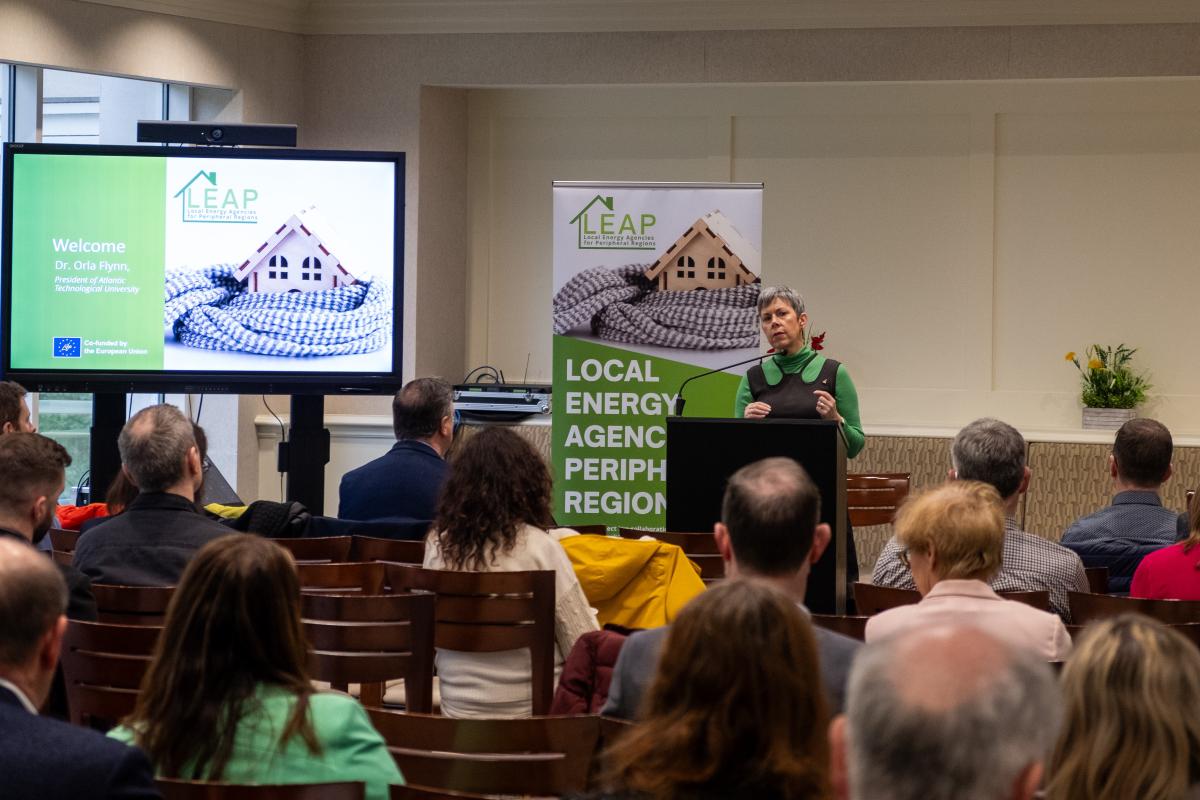Ireland is not typically associated with scorching summer temperatures, and even with the impact of climate change, it is unlikely to witness extreme heatwaves. However, the nation faces challenges in adapting to changes in energy generation, water resources, and aging infrastructure. Issues such as remote and older residential properties, heavy reliance on oil and solid fuels, as well as fragmented supply chains, contribute to elevated living expenses and the inefficiency of home heating systems. Additionally, the process of retrofitting homes is complex and costly.
In 2021, Ireland established ambitious climate targets, aiming for a 51% reduction in greenhouse gas emissions by 2030 and achieving net zero emissions by 2050. One of the key objectives is to retrofit 500,000 homes by 2030. Despite government financial assistance initiatives, the responsibility for meeting this target ultimately lies with homeowners.
The LIFE Local Energy Agencies for Peripheral Regions initiative, operating in Donegal, Sligo, Leitrim, and western Galway, is actively supporting homeowners in upgrading their residences and fostering collaborations with local suppliers. In Donegal, the northernmost county, where winter temperatures range between 2 and 3 degrees Celsius with frequent heavy rainfall, home retrofitting is essential for resilience. Through LIFE LEAP, three Local Energy Agencies – North West Energy Agency (NWEA), Gníomhaireacht Fuinnimh an Iarthar (GFI), and Sligo Leitrim Energy Agency (SLEA) – have been established to serve as comprehensive resources over a four-year period. These agencies will assist communities in navigating building enhancements and local supply chains by partnering with energy assessors, retrofit contractors, and installers, thereby facilitating collaborations within the home renovation sector.
Under the leadership of Atlantic Technological University (ATU) and in partnership with the County Councils of Sligo, Leitrim, and Donegal, Údarás na Gaeltachta, and Aran Island Energy Co-op, LIFE LEAP aims to facilitate a continuous stream of community-based projects. The core mission is to ensure that all homeowners have the opportunity to enhance their homes for improved warmth, cost-effectiveness in heating, and increased property value.
Addressing the impact on homeowners, Paraic Barret, Manager at GFI, emphasized the newfound accessibility for individuals seeking guidance on home retrofitting. He expressed gratitude for the support of the EU LIFE Programme in assisting both fuel poor and non-fuel poor households. Aidan McGrenra, Manager at NWEA, highlighted the project’s focus on developing area-specific retrofit programs in collaboration with the Sustainable Energy Authority of Ireland, emphasizing the valuable insights gained from the LEAP Project.
Barry Lowe, Manager at SLEA, stressed the significance of grants in facilitating home upgrades and retrofitting projects. He noted the agency’s progress in implementing area-based initiatives and its commitment to community engagement through the SEAI Community Energy Grant Scheme.
